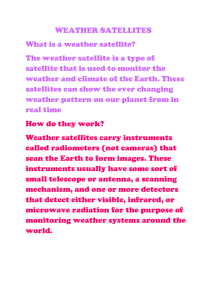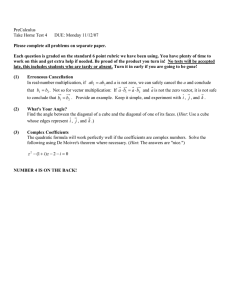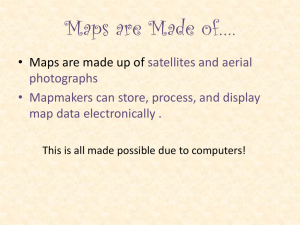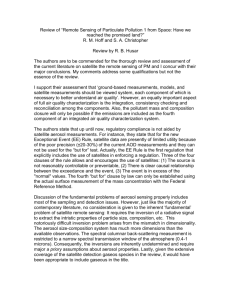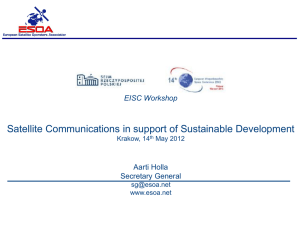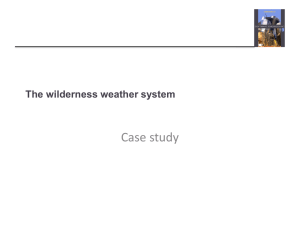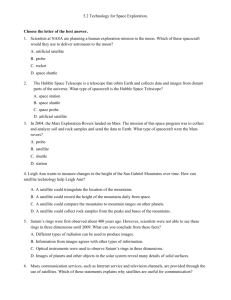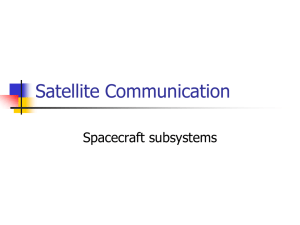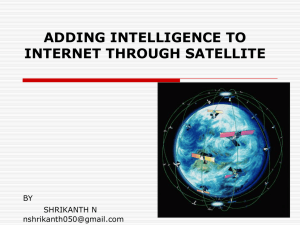Satellite Communication - Rapti Engineering College
advertisement
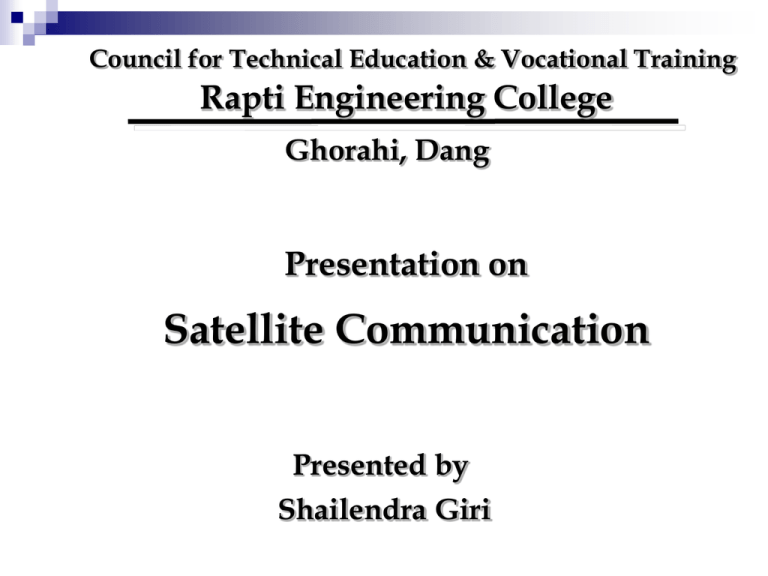
Council for Technical Education & Vocational Training Rapti Engineering College Ghorahi, Dang Presentation on Satellite Communication Presented by Shailendra Giri WEL-COME TO PRESENTATION Introduction: In a satellite link, there are earth stations, which send signals at a frequency band. When the satellite is above the station, signal is received & the satellite retransmits it after amplifying it at another frequency. Then signal can be received by ground stations which are below the satellite. Thus Geosynchronous satellites, it is possible to establish communication link over wide area as the satellite covers wider area Important aspects are: 1. 2. 3. 4. 5. Satellite should be as small and lightweights as possible. Should use minimum energy. Should carry as many communication channels as possible. Since launchers & Satellite are expensive, spacecraft should be capable of functioning without maintenance for many years. Satellite should be designed with as much flexibility as possible to cope with the changes in communication technology. Geosynchronous satellites provide the following advantages: Satellite appears stationary relative to earth. Therefore tracking of antennas is not necessary No need to switch from one satellite to other and therefore no break in transmission. One satellite is capable of covering about 40% of the earth and hence large numbers of earth stations are linear-connectable. Just 3 satellites are enough to cover the entire globe. Geosynchronous satellite has the following demerits: Regions of the earth above 80 degree latitude cannot be covered. Since the distance is very large, the signal strength becomes very Because of large distance the signal suffers a delay of 540s in a two way communication Up link frequency: At this frequency the ground station transmit signal to the satellite. Commonly used bands are 6GHz & 14GHz. Down link frequency: The downlink frequency is lower than up link frequency. Commaonly used bands are 4GHz, 12GHz & 20 GHz. Just 3 satellites are enough to cover the entire globe. The regions of earth above 80 degree latitude cannot be covered. Components of Satellites Altitude & Orbit Control system Telementry, Tracking and Command Power System Communication Subsystems Antenna Subsystem Thank You For Your Time
